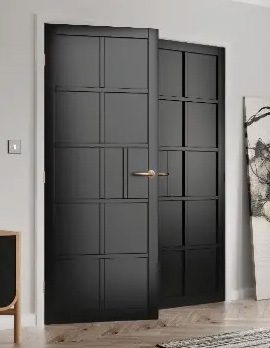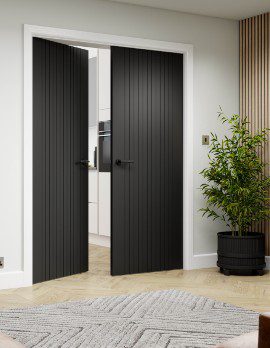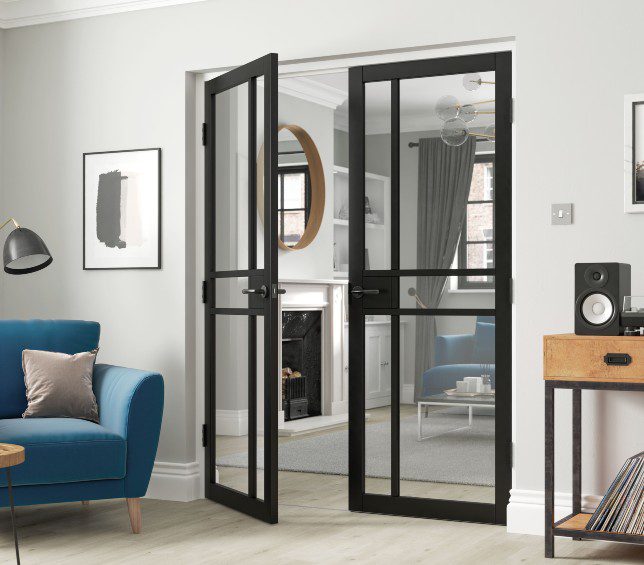Flipping Houses in the UK: Everything You Need to Know
Flipping houses has become an increasingly popular investment strategy in the UK, appealing to both seasoned property investors and newcomers looking to enter the market. However, whilst house flipping can be lucrative, it’s not without its challenges. With shifting market trends, financial risks and a myriad of regulatory requirements to consider, flipping houses requires careful planning, industry knowledge and a keen eye for opportunity.
In this guide, we’ll walk through everything you need to know about flipping houses in the UK, providing you with insights and tips to help maximise your returns in the UK property market.
What is house flipping?
House flipping is a property investment strategy where an investor will purchase a property with the intent of selling it on for a profit. The property will typically be in need of significant renovation, meaning it can be bought at a lower market price. The investor will then improve the appeal and market value of the property by making upgrades and refurbishments. Once the work is complete, the property will be reintroduced to the market at a higher price. The aim is to generate a profit from the sale that outweighs the initial costs and renovation expenses.

What are the benefits of house flipping?
Flipping houses has become a popular option for UK investors thanks to the potential to generate substantial returns, opportunities for creativity in interiors and house renovations, and the flexibility it provides for investment.
Financial gain and profit potential
One of the most compelling reasons to flip houses is the opportunity to generate significant profit. As the housing market in the UK remains robust, particularly in sought-after areas, well-executed flips can generate a strong return on investment.
House flipping offers investors the chance to turn an undervalued property into a high-value asset within a relatively short time. In addition, it can often yield higher returns than many traditional forms of investment in the same period.
Opportunities for creative interior design and renovation
House flipping doesn’t have to just be about numbers. For many, it is also a creative endeavour, with investors wanting the chance to redesign and improve properties with unique touches. Flipping houses gives the investor freedom to experiment with design, from selecting materials and finishes to creating new layouts to maximise space and functionality.
Investors with a passion for home improvement find it especially rewarding to transform tired, outdated properties into modern, attractive homes. This creative side of house flipping adds a layer of satisfaction, as investors can see their vision come to life while making a property more desirable to buyers.
Flexibility in investment strategy
Unlike some investment routes, house flipping offers flexibility, allowing investors to choose properties that fit their budget, timeframe and risk tolerance. For example, some investors may prefer to opt for properties that need just quick cosmetic flips with minimal work, focusing on small updates that yield fast returns. Others may prefer to take on more extensive renovations, with features such as adding an extension or loft conversion to significantly increase the property value.
Additionally, house flipping can adapt to changing market conditions. Investors have the option of holding onto a flipped property temporarily if the market slows, or they can rent it out for additional income. This flexibility means that house flipping can be tailored to the goals of the investor, which can make it an appealing option for those looking to diversify their investment approach.

What are the challenges of house flipping in the UK?
While house flipping can offer impressive rewards, it comes with its own set of challenges. From financial risks to the legal complexities involved, flipping houses in the UK requires careful planning and a realistic understanding of what the process entails.
Financial risks and market fluctuations
There are significant financial risks involved with house flipping. House prices can be unpredictable and even a well-located property with smart renovations could fail to sell at the anticipated price. Factors such as interest rate changes, economic downturns and local market slowdowns can all impact property values. This can reduce profit margins and even result in a loss.
In addition, the costs of purchasing, renovating, and selling properties can add up quickly. Unexpected delays or expenses in the renovation project can reduce profits even further. Having a clear financial plan, which includes a contingency budget, can help house flippers to effectively navigate these risks.
Regulatory challenges and legal considerations
Flipping houses in the UK will, of course, require adherence to UK property laws, building regulations and planning permissions, which can all pose challenges. Depending on the type of renovation being undertaken, flippers may require approval from local councils. Listed properties in conservation areas will face even more restrictions on the type of work that can be done.
If flippers don’t secure the proper permissions or fail to comply with building codes, they could face fines, delays or even need to reverse completed work. Health and safety standards, both during and after renovation, will also need to be considered and adhered to. Investors need to be aware of all the legal requirements to ensure their projects proceed smoothly and avoid potential penalties.
Time and commitment
House flipping demands time, effort and commitment. The process of finding the right property, managing the renovations and overseeing the final sale can all be time-consuming, especially if it involves extensive renovation projects. Flipping houses not only requires financial resources but also project management skills to coordinate contractors, keep track of budgets and ensure deadlines are met.
For investors who are also balancing other professional and personal commitments, the demands of flipping can quickly become overwhelming. It’s vital that flippers understand the time commitment involved in house flipping before they take on a project.

Flipping houses in the UK: step-by-step
Successfully flipping houses in the UK requires a systematic approach to each stage, from finding the right property to marketing it post-renovation. By carefully navigating these steps, flippers can increase their chances of a successful, profitable venture in the UK property market.
Find the right property
The first step in house flipping is to find a property with potential for added value. Many flippers seek homes that look to be undervalued or in need of repair, as these will typically be available at a lower purchase price. Properties sold at auction or repossessions can be good options, as these will often be sold below market prices. However, they can also come with the caveat of needing extensive work, so investors will need to balance the cost of repairs with the purchasing price.
Researching local property markets and attending auctions can help investors to identify promising options. Additionally, scouting for homes in up-and-coming areas or locations with strong market demand can increase the chances of a profitable resale.
Assess renovation needs and costs
Once a property has been chosen, the next step is to assess the scope and cost of renovations. This stage is crucial, as accurate cost estimates will help with budgeting and setting realistic profit expectations. As part of this analysis, investors will need to account for major changes, such as roofing or plumbing work, as well as minor upgrades, such as cosmetic changes.
A property survey can provide insights into any structural issues or repairs that may be necessary, while also helping to identify updates that will add the most value.
Examine finance options
House flipping will require substantial upfront capital, so it’s essential to find the right financing option. Understanding the pros and cons of each financing option can help flippers align funding with their project’s timeline and expected returns.
Traditional buy-to-sell mortgages may be available for some flips, but these will typically come with stricter conditions and shorter terms. Bridging loans are another popular choice for house flippers, as they offer short-term funding that allows investors to purchase and renovate a property quickly, but they often come with higher interest rates. Private funding or investors can offer additional flexibility, if available to the flipper.
Renovate the property
Once financing is secured and the property is purchased, renovations can begin. It’s crucial to hire reliable contractors, to reduce the risk of delays or substandard work eating into profits. Many house flippers will work with trusted tradespeople, or some may prefer to complete parts of the work themselves to reduce costs.
It’s important to budget carefully for each stage of the renovation to prevent overspending. Setting clear timelines can help to keep the project on track. It’s wise to include a contingency buffer in the budget for any unexpected issues, as renovations often reveal hidden complications, especially in older homes.
Market and sell the property
Once the property is renovated, the final step is to market it effectively for sale. Staging the property, i.e. furnishing the home to present it in the best light and taking professional photographs will help to make it more appealing to potential buyers. Flippers should look to partner with experienced local estate agents who understand the local market. They will be able to set the most competitive price for the property and attract the right buyers.
It’s essential to factor in costs associated with the sale in the initial budget, such as estate agent fees and taxes. Timing the sale strategically, based on market conditions, can help to achieve the best possible price and maximise profit.
JB Kind has a huge range of internal doors in a variety of styles, perfect for your house flipping project. Download our brochure or contact us to find out more.